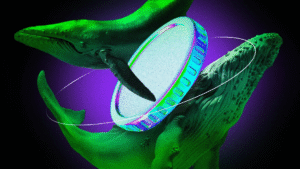Elon Musk’s Neuralink seeks patients globally to try its brain chips

Elon Musk’s computer-chip brain implant company Neuralink is seeking patients all around the world to trial its device that allows one’s thoughts to control a computer.
Neuralink is looking for people with quadriplegia — those who are not able to use their arms or legs — to sign up for a clinical trial, it said in an April 2 post on X, the social media platform also owned by Musk.
As of January, Neuralink has said that three patients have been implanted with a device. All are quadriplegic and are testing a small brain implant that tracks neural activity to control a computer or smartphone as part of a clinical trial called the Precise Robotically Implanted Brain-Computer Interface, or PRIME study.
Neuralink is one of several companies and academic institutions developing and testing so-called brain-computer interfaces, which vary from small wire-like implants as part of clinical trials to non-invasive devices akin to a hat.
Source: Neuralink
Neuralink’s website says its clinical PRIME study, which will take around six years, is looking for quadriplegics with spinal cord injury or amyotrophic lateral sclerosis to use their thoughts to control a computer.
Musk also heads vehicle maker Tesla and is the Trump administration’s government cost-cutting czar. He has said he wants Neuralink to move beyond just allowing humans to operate computers by thinking and wants to help “give people superpowers.”
First Neuralink patient reports no side effects after a year
Noland Arbaugh, Neuralink’s first patient, said in a March 28 X post that he’s “had no negative side effects, neither physically nor psychologically” in the year after receiving his brain implant.
Arbaugh, a quadriplegic, demoed his brain chip about a year ago by controlling a computer cursor to play chess and surf the web.
https://t.co/OMIeGGjYtG
— Neuralink (@neuralink) March 20, 2024
Arbaugh said he’s now using his brain chip “for all sorts of things” and guessed he’s using it for over 10 hours a day.
Related: SpaceX flight bankrolled by crypto investor launches first manned polar orbit
He said the company’s researchers were “figuring out how to control a wheelchair with the implant,” which he added he won’t use “unless it’s next to perfect. I think it benefits everyone if I don’t lose control and drive into traffic.”
Arbaugh said he had found work as a traveling keynote speaker thanks to Neuralink’s implant, which helps him write, research, and communicate online.
“I can’t tell you how much hope and purpose this technology has provided me,” he wrote. “It’s only a matter of time before the implant is in dozens, then hundreds, then thousands of people.”
Magazine: Crypto fans are obsessed with longevity and biohacking — Here’s why













